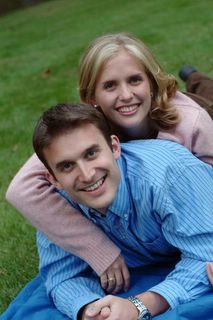Cantique de Noel - O Holy Night
History:
"O Holy Night" remains one of the world's most beloved Christmas carols, with uplifting lyrics and melody. The lyrics were written by Placide Cappeau (1808-1877), a resident of Roquemaure, France (located a few miles north of the historic city of Avignon). Cappeau was a wine merchant and mayor of the town, as well as an occasional writer of poetry. Known more for his poetry than his church attendance, it probably shocked Cappeau when his parish priest, shortly before Cappeau embarked on a business trip, asked him to pen a poem for Christmas mass. In a dusty coach traveling down a bumpy road to France's capital city, Cappeau considered the priest's request. Using the gospel of Luke as his guide, Cappeau imagined witnessing the birth of Jesus in Bethlehem. Thoughts of being present on the blessed night inspired him. By the time he arrived in Paris, "Cantique de Noel" had been completed.
Moved by his own work, Cappeau decided that his "Cantique de Noel" was not just a poem, but a song in need of a master musician's hand. Not musically inclined himself, the poet turned to one of his friends, Adolphe Charles Adams, for help, when he arrived in Paris. The son of a well-known classical musician, Adams had studied in the Paris conservatoire. Adams was at the peak of his career, having written his masterpiece, Giselle, only a few years before, in 1841. As a man of Jewish ancestry, for Adams, the words of "Cantique de Noel" represented a day he didn't celebrate and a man he did not view as the son of God. Nevertheless, Adams quickly went to work, attempting to marry an original score to Cappeau's beautiful words. Adams' finished work pleased both poet and priest. The song was performed just three weeks later at a Midnight Mass on Christmas Eve, 1847, in Roquemaure.
By 1855, the carol had been published in London, and has been translated into many languages. The best known English translation is " O Holy Night" authored by John Sullivan Dwight (1813-1893), a Unitarian minister, an American music critic and journalist who made his home at the Transcendentalist community of Brook Farm, Massachusetts. Dwight felt that this wonderful Christmas song needed to be introduced to America, and he saw something else in the song that moved him beyond the story of the birth of Christ. An ardent abolitionist, Dwight strongly identified with the lines of the third verse: "Truly he taught us to love one another; his law is love and his gospel is peace. Chains shall he break, for the slave is our brother; and in his name all oppression shall cease." The text supported Dwight's own view of slavery in the South. Published in his magazine, Journal of Music, Dwight's English translation of "O Holy Night" quickly found favor in America, especially in the North during the Civil War. By coincidence, Christmas became a legal holiday in Massachusetts the same year as Dwight published his translation. (Found at www.erasofelegance.com)
Lyrics:
O Holy night, the stars are brightly shining
It is the night of the dear Saviour's birth
Long lay the world in sin and error pining
Till He appeared and the soul felt His worth
A thrill of hope, the weary world rejoices
For yonder beams a new and glorious morn
Fall on your knees! Oh, hear the angel voices!
O night divine! O night when Christ was born!
O night divine! O night, O night divine!
Led by the light of faith serenely beaming
With glowing hearts by His cradle we stand
So led by light of a star sweetly gleaming
Here came the wise men from the Orient land
The King of Kings lay in lowly manger
In all our trials born to be our friend
He knows our need
To our weakness no stranger
Behold your King! before the lowly bend!
Behold your King! before Him bend!
Truly he taught us to love one another
His law is love and His gospel is peace
Chains shall He break, for the slave is our brother
And in His name all oppression shall cease
Sweet hymns of joy in grateful chorus rise we
Let all within us praise His holy name
Christ is the Lord
Then ever, ever praise we
His pow'r and glory ever more proclaim
His pow'r and glory ever more proclaim


0 Comments:
Post a Comment
<< Home